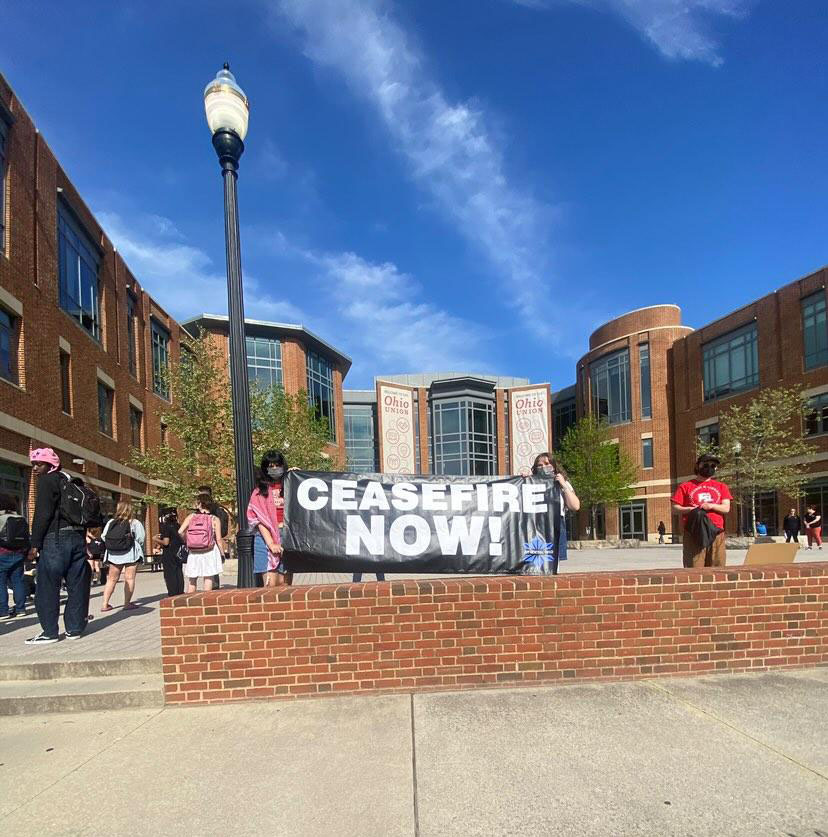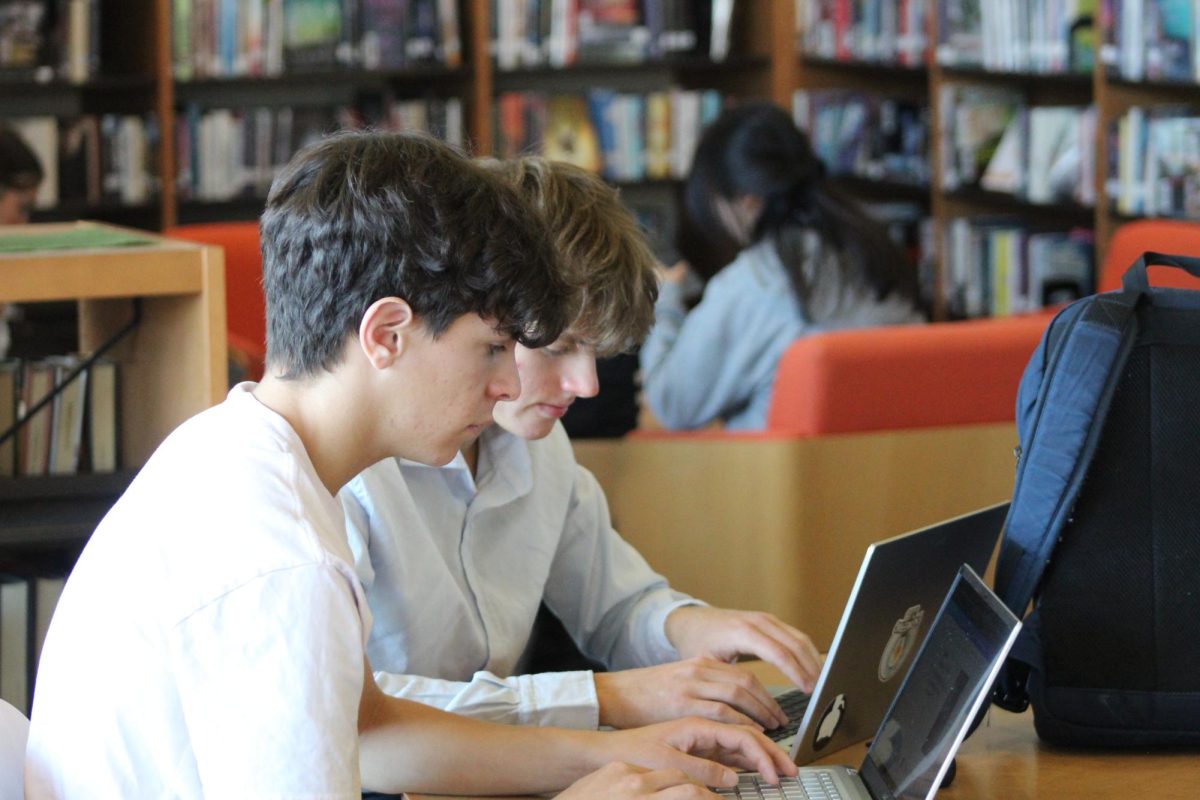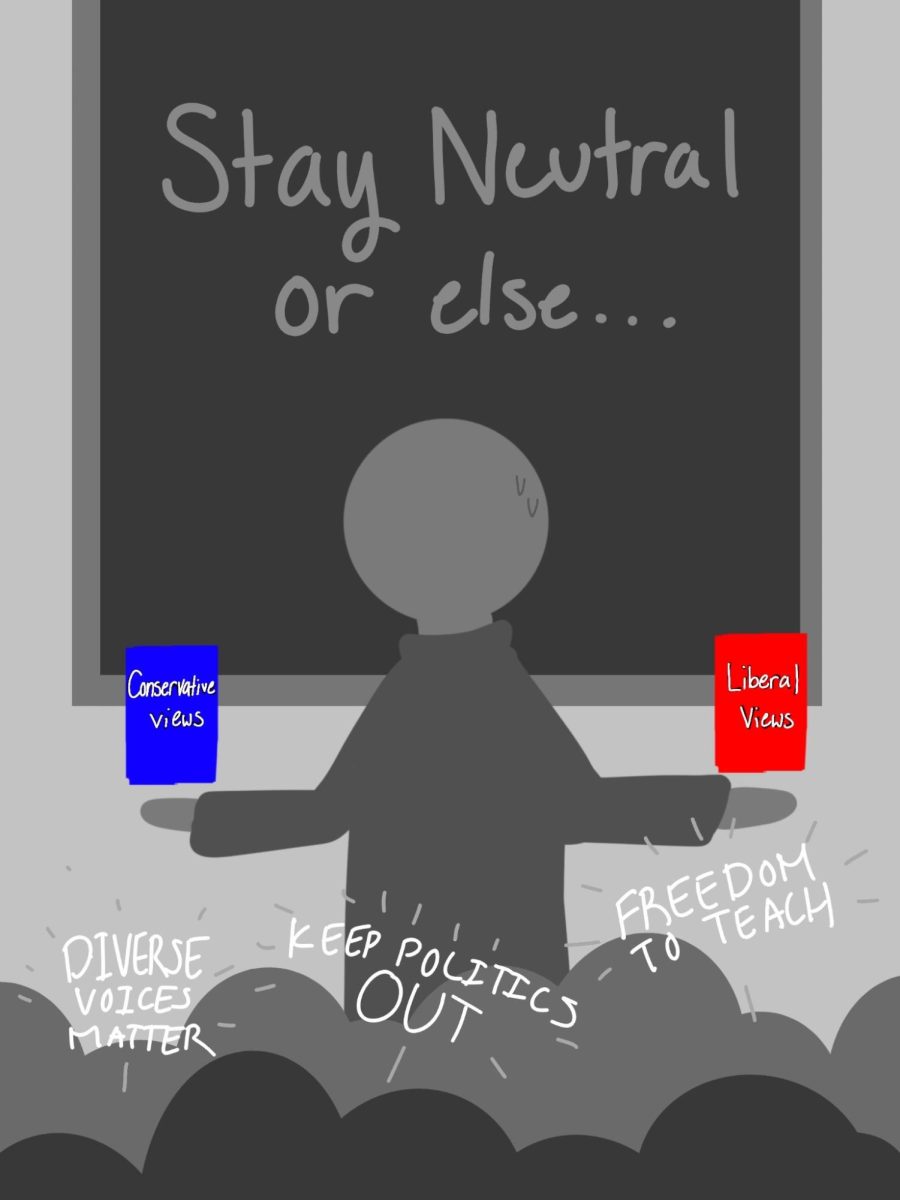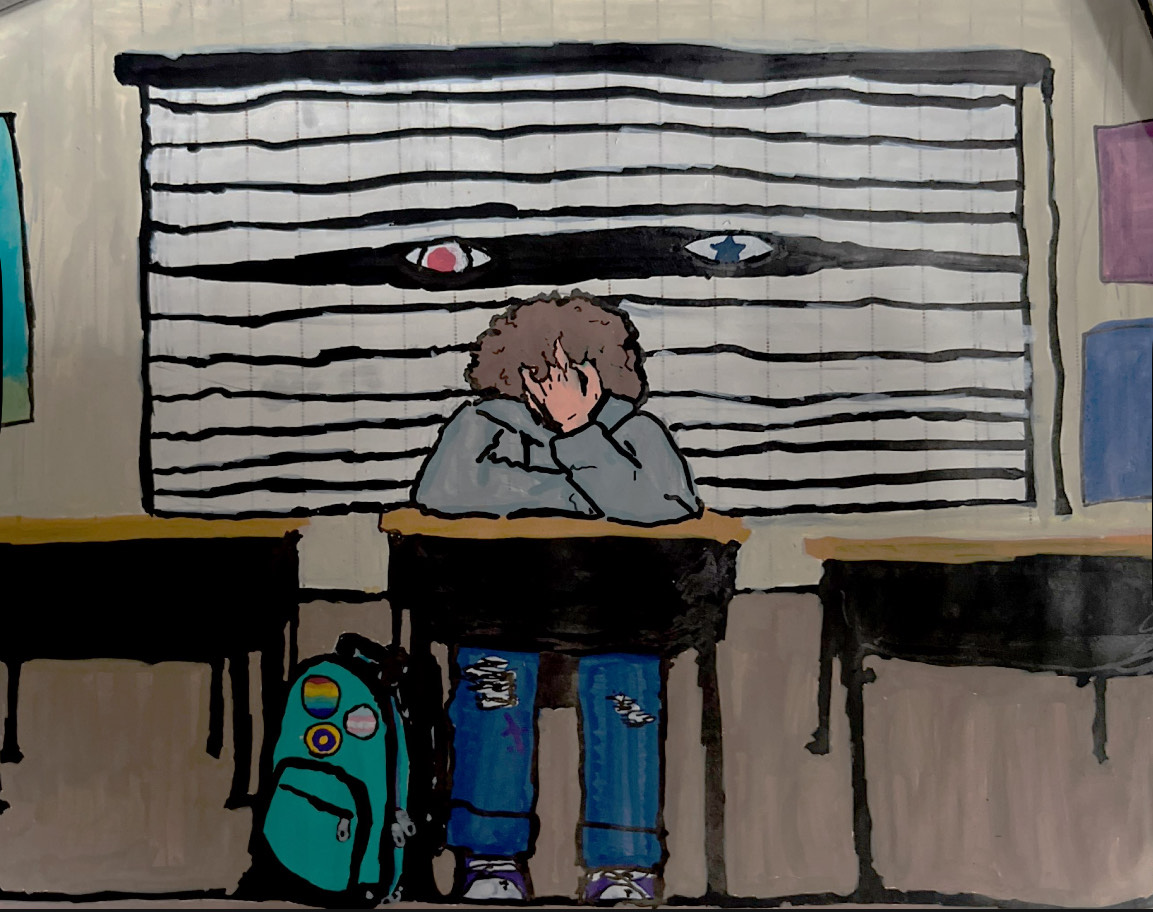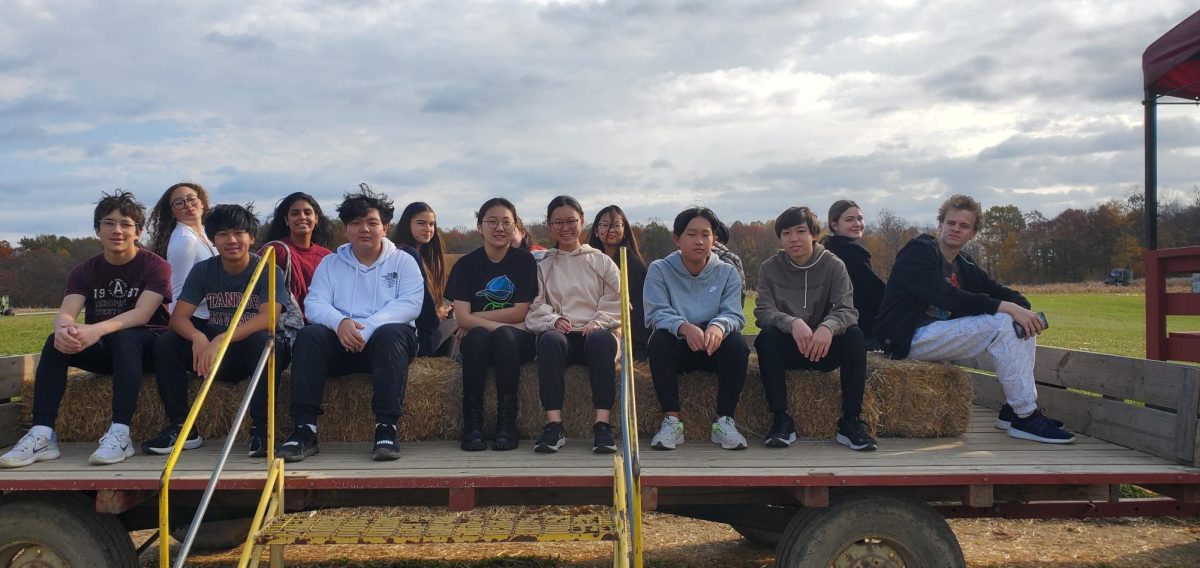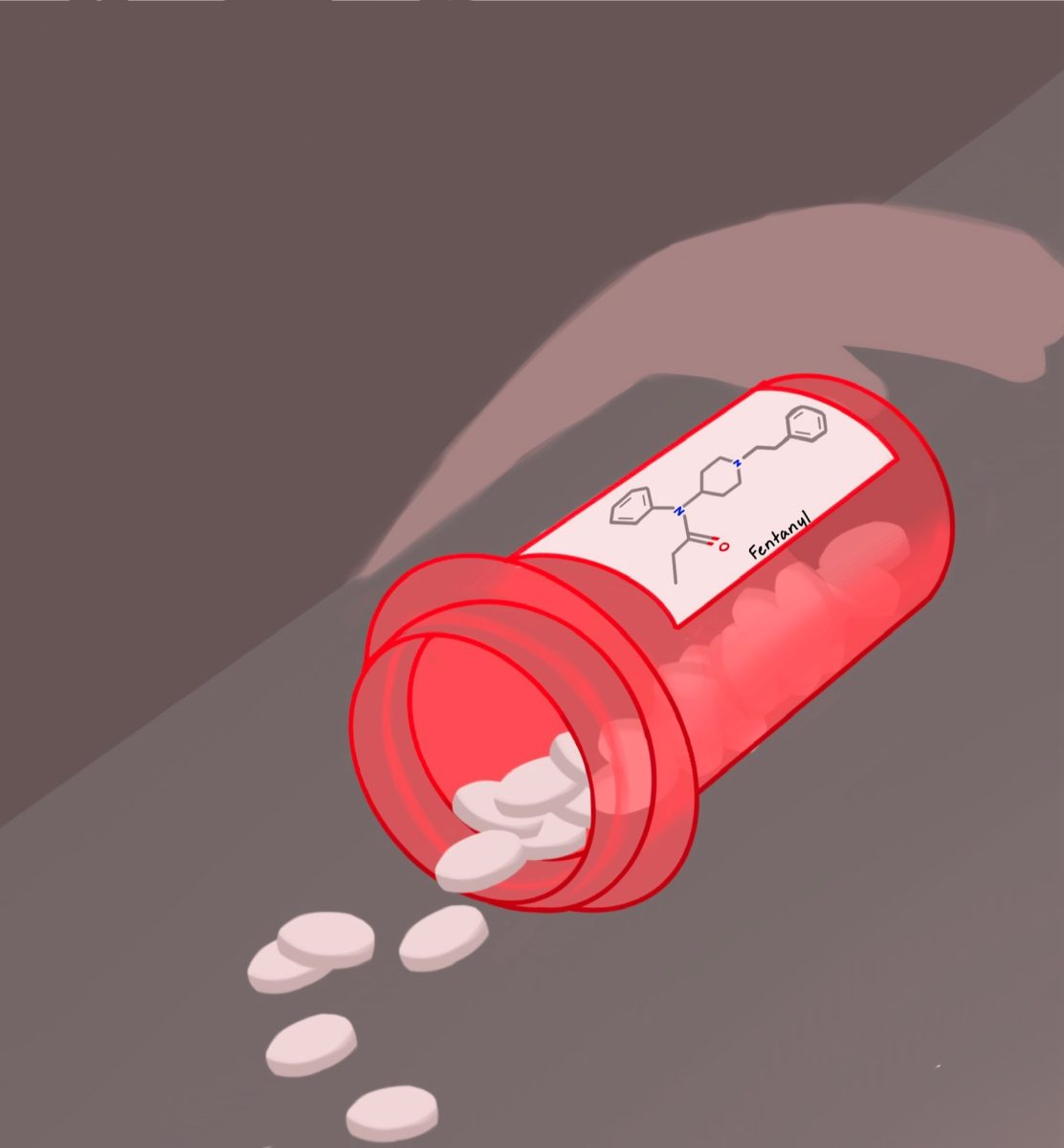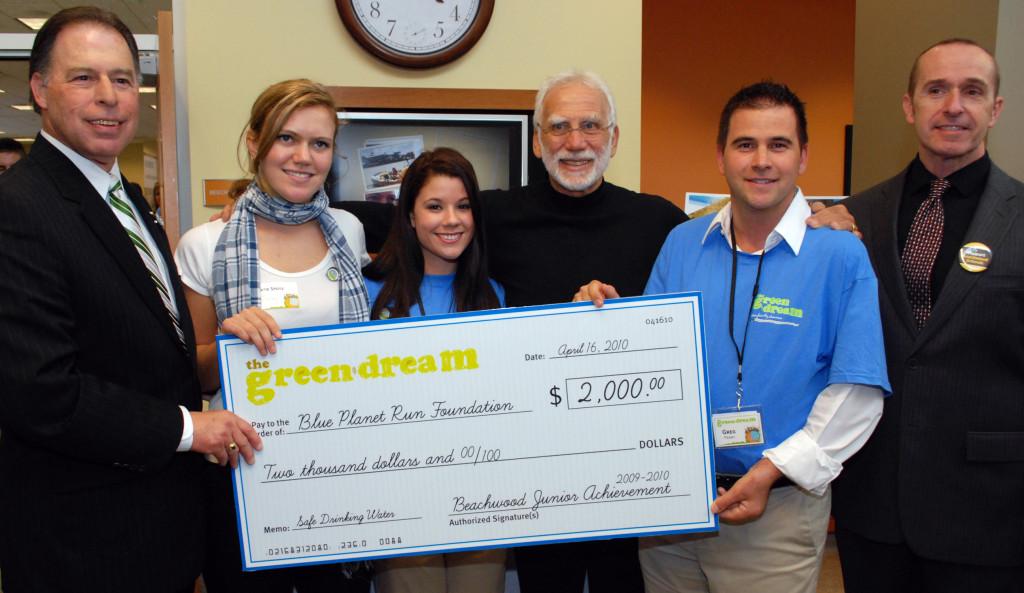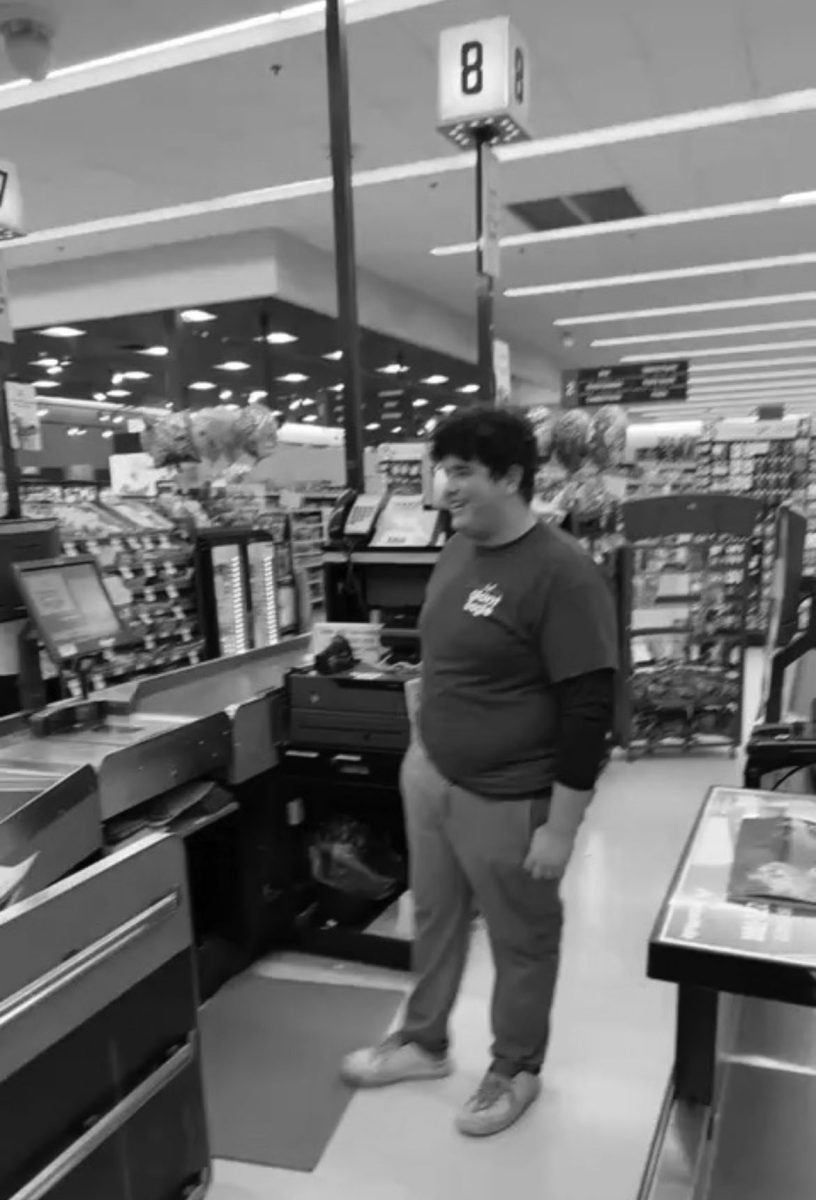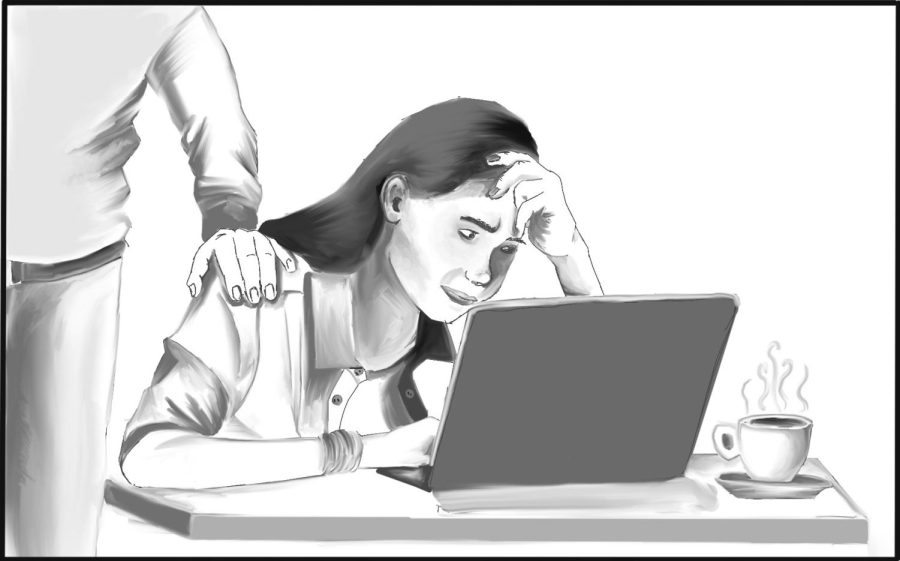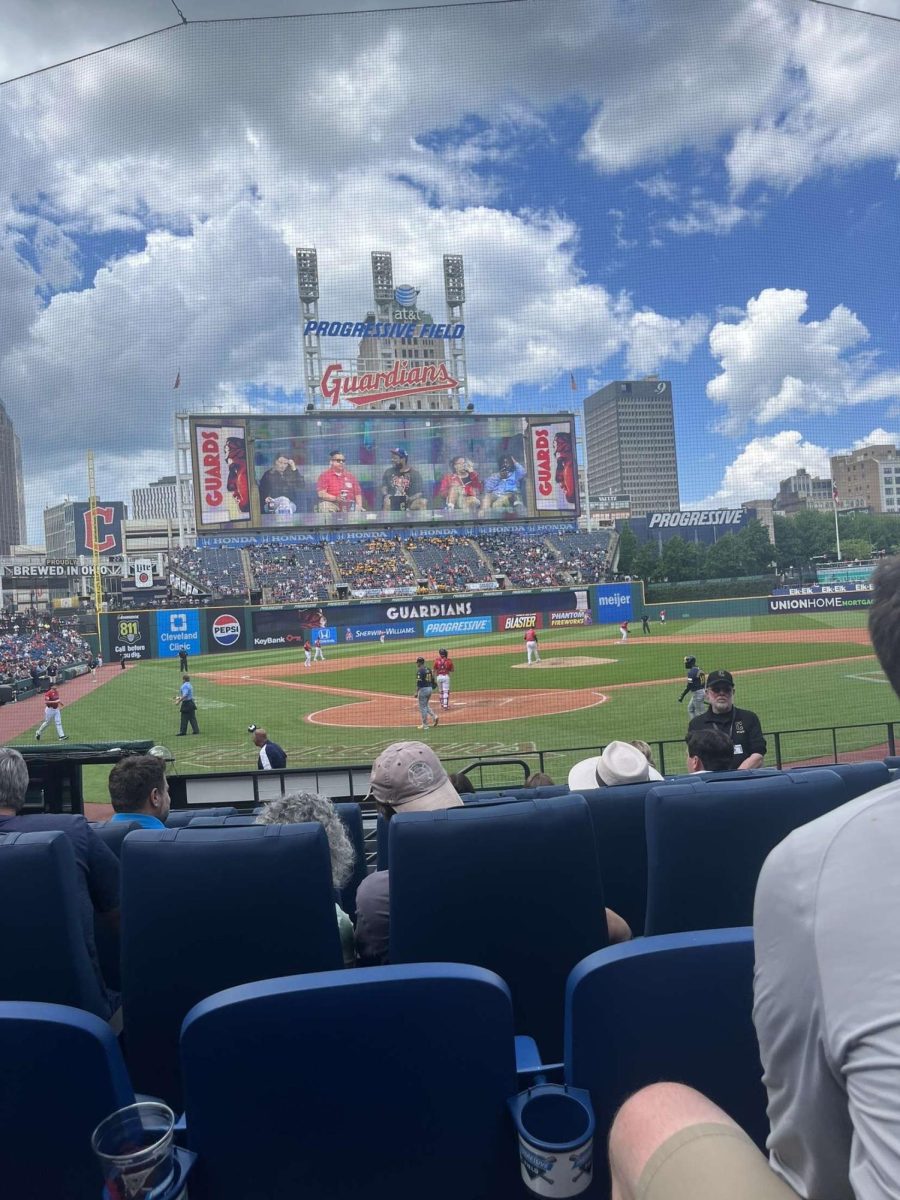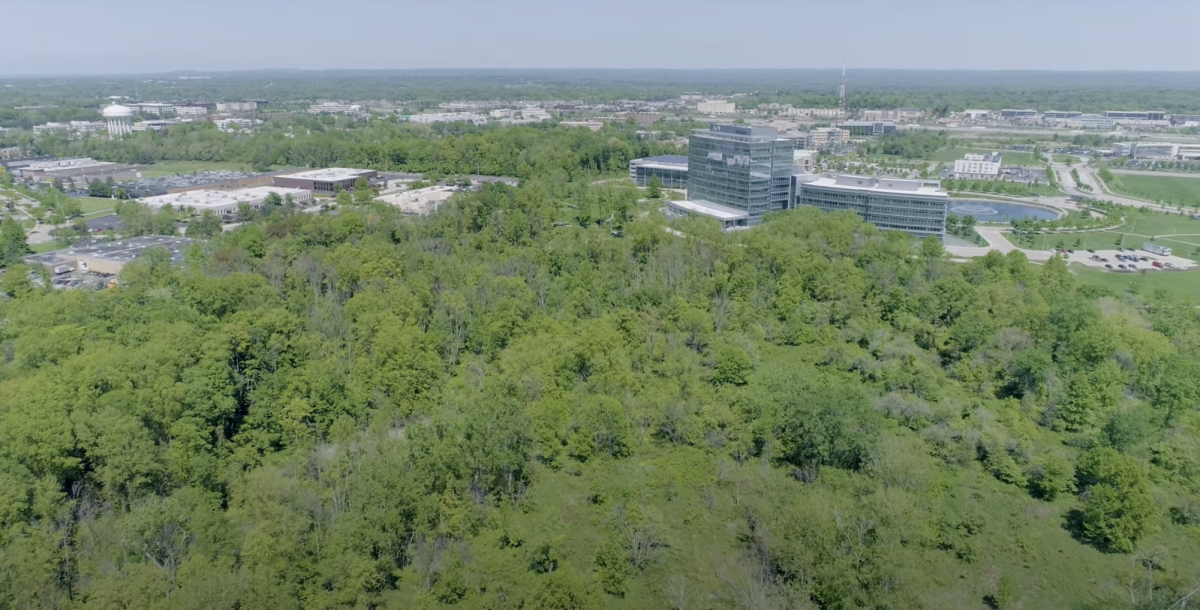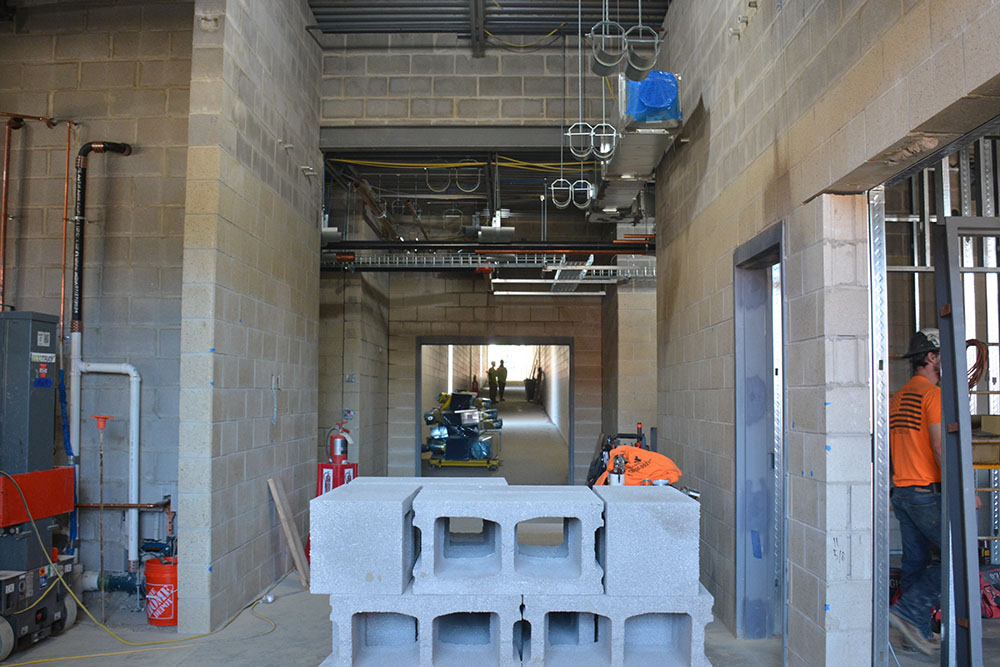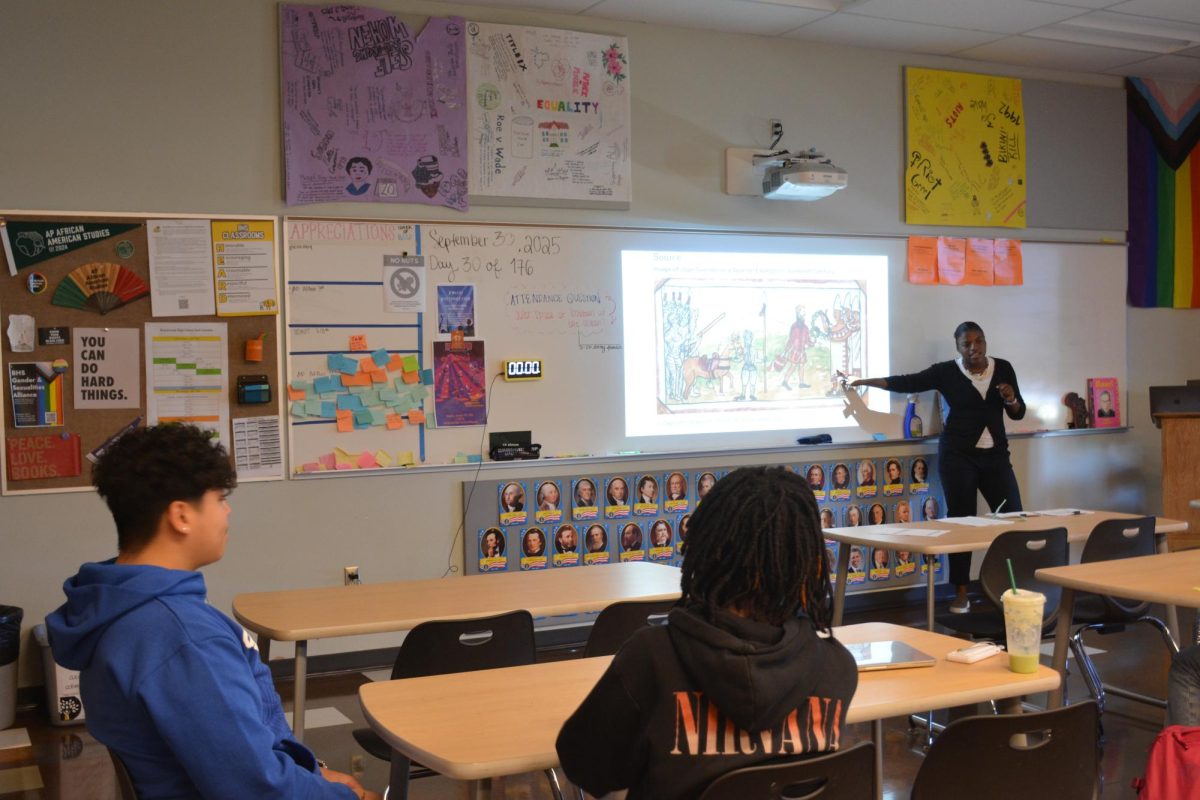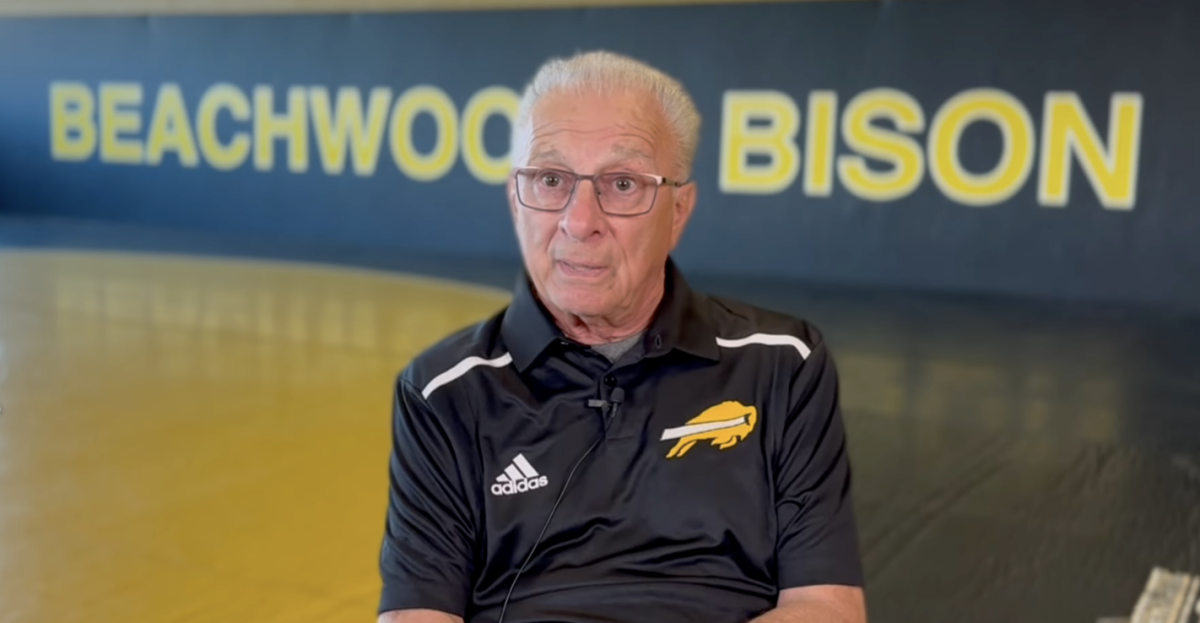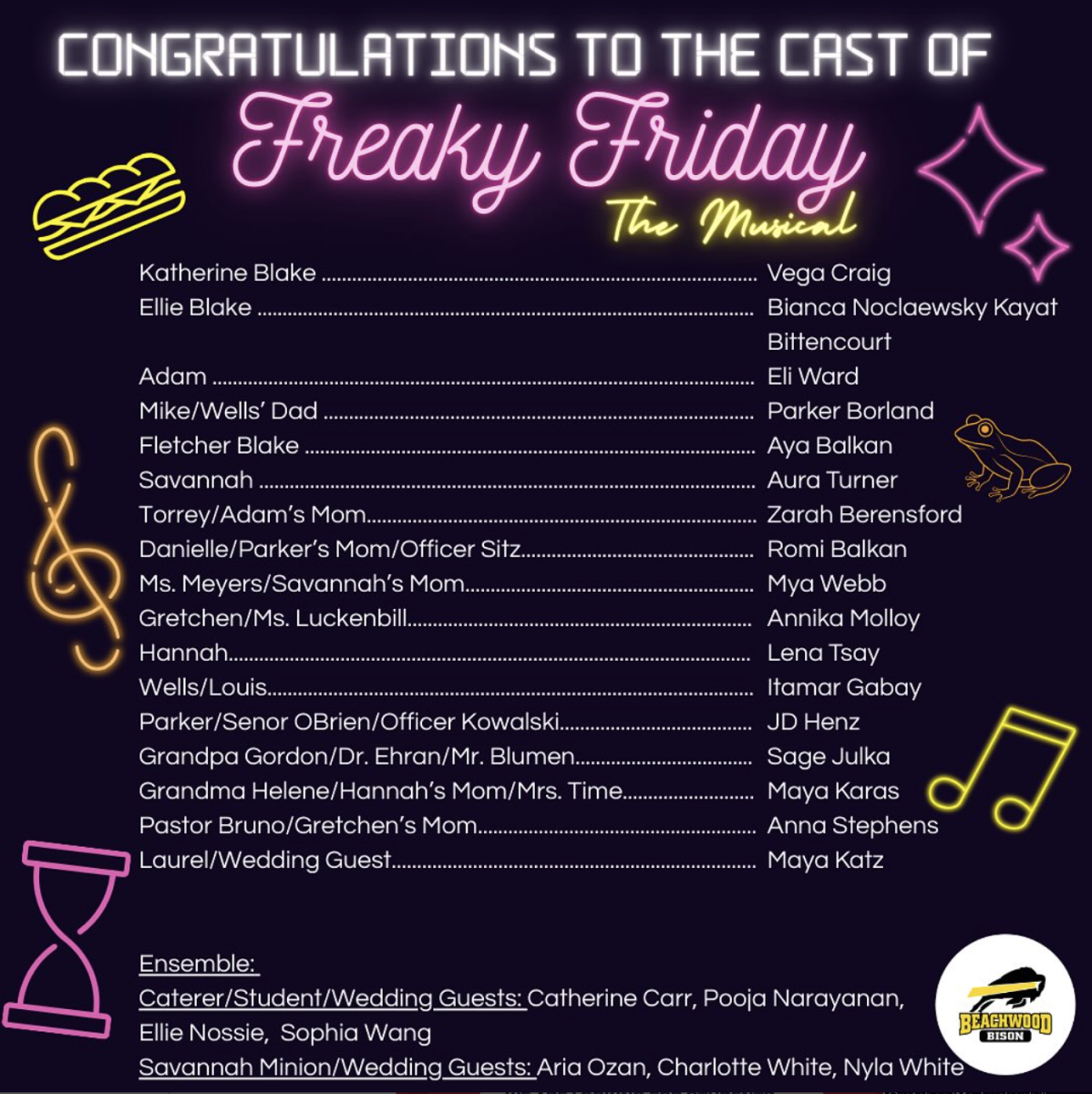As a result of the war in the Middle East, tensions have risen on American college campuses and here at BHS.
“There are constant discussions and heated arguments that arise because of the worsening situation in the Middle East,” said Eden Cohen, a BHS senior who is Jewish. “It doesn’t feel unsafe in school, but [there] is certainly a more palpable tension.”
A year has now passed since Hamas’s attack and Israel’s subsequent ground invasion of Gaza.
Hamas is thought to be holding at least 97 of the 240 hostages initially taken. More than 1,200 Israelis and nearly 43,000 Palestinians have died. The conflict has escalated into war with Iranian proxies Hezbollah in Lebanon, Houthi rebels in Yemen and a potential full scale war with Iran.
On Oct. 17, Israeli authorities revealed that Hamas leader Yahya Sinwar was killed as a result of a mission they conducted in Gaza.
As the war in the Middle East continues, the conflict has impacted American students in college and high school, many of whom feel personal connections to Israel or empathy for the Palestinian people.
In the months after the war began, American Jews rallied for the return of hostages while pro-Palestinian protests broke out on college campuses. Israeli protesters, led by families of hostages, have rallied against Prime Minister Benjamin Netanyahu for his failure to secure a hostages-for-ceasefire deal with Hamas.
Protest encampments were established at nearly 150 colleges and universities in the United States last spring. One of the first of these encampments was established at Columbia University in April.
The activism appears not to have affected the course of the war or U.S. support for Israel. Nevertheless, the protests continue.
Many of the protesters are advocating for their school’s divestment of funds from Israeli companies and cutting ties with Israeli academic institutions.
Rabbi Jonathan Cohen, formerly of Temple Tifereth Israel and father of Eden Cohen, believes that although students have a right to free speech, the protests have led to antisemitic incidents on college campuses.
“My concern is not with the protests themselves, but with the way they were carried out…,” Cohen said. “[The protests resulted in] the targeting of individuals and the rise in violent incidents against people on the basis of their faith and background.”
However, others support the protesters as people who are willing to sacrifice to take a stand against suffering and death.
“I think we’re in a moment where a lot of people are starting to ask themselves, when I’m watching people be ruthlessly murdered, what sacrifices am I willing to make?” said Shereen Naser, a Palestinian-American School Psychology Professor at Cleveland State University. “Some of those sacrifices can [be that] I’m willing to take a misdemeanor charge because children in Gaza right now are starving, if it means bringing attention to the cause.”
Protest organizers on many college campuses are continuing their activism this year.
“[The protests will] absolutely be [continuing],” said Tal Shutkin, a member of the Ohio State University’s Jews for Justice In Palestine chapter, in an interview conducted in late August. “I think the protests will continue until there’s justice in Palestine. That means a ceasefire, but that also means an end to occupation and end to apartheid.”
Students who participated in the encampments faced heavy disciplinary and legal repercussions from their schools. Many campuses called local police forces to forcibly remove protestors off-campus. Students at The Ohio State University recall firearms being perched atop the Ohio Union, aimed at student protesters.
“I think that it’s really important for people to know, and especially for parents to know, that the Ohio State administration condones potentially putting their kids in life threatening situations by escalating a situation that was entirely peaceful,” Shutkin added.
The heavy-handed ways that universities have responded to the encampments have led many to wonder whether responses are truly warranted. Almost 30% of students who participated in the pro-Palestinian protests say they’ve had job offers rescinded, and two-thirds believe it is a result of their participation in protesting.
Palestinians and human rights groups are concerned about the number of people killed in Gaza, which the Lancet, a medical journal, estimates could rise to as many as 186,000 deaths this year.
“There are billions of dollars going into the deaths of Palestinians coming from the United States,” said Dr. Naser. “…Protests are an organic eruption of dissent to mass murder… Each single encampment is part of a much larger movement of Jewish, Palestinian and other people who feel more obligated to speak up.”
“I think [the ways universities have responded are] justified. I think all people have the right to protest, but when it [becomes] hate crimes and hate speech, I think they should stop, because they will only spread more hate,” said Isaac Gorodeski, the President of the BHS Israeli Culture Club, who reported on the protests at Case Western Reserve University for The Beachcomber.
Even within the Jewish community, the definitions of antisemitism and anti-Zionism have been disputed in recent years.
Mainstream Jewish organizations such as The Anti-Defamation League (ADL) define much anti-Zionist speech as antisemitic.
“Antisemitism sometimes targets Jews not as individuals but as a collective – whether that’s Jewish organizations, movements like Zionism or the Jewish State of Israel,” the ADL website states.
Meanwhile, left wing organizations, including Jewish groups such as Jewish Voice for Peace, are critical of both Zionism and antisemitism.
“We have come to see that Zionism was a false and failed answer to the desperately real question many of our ancestors faced of how to protect Jewish lives from murderous antisemitism in Europe,” the group’s website states.
Nevertheless, many Jewish students have experienced antisemitism in their encounters with anti-Zionist protesters. Gorodeski was shocked by some of the signs he saw while reporting on protests at Case Western University last spring.
“I saw a bunch of signs saying ‘All Zionists should die’,” continued Gorodeski. “[Anti-Zionists are] against Jewish people having a right to self-determination in Israel, which is [their] ancestral homeland, so I think [antisemitism and anti-Zionism are] synonymous.”
“I think [antisemitism] has shown up in the Palestinian solidarity world at the moment, but it’s absolutely not, from my experience, ever coming from Palestinians,” Shutkin said.
He believes that Palestinians have a good understanding of antisemitism and of Jewish history because Palestinian history is similar to Jewish people’s.
“[Jewish history] affects them in ways that I don’t think most of us necessarily appreciate, and so I’m consistently uplifted when I talk about antisemitism with Palestinians,” he added.
Rabbi Cohen believes that a poor understanding of the issues surrounding the Israeli-Palestinian conflict has contributed to the rise in antisemitism.
“I think that part of the issue with these protests is that we have to be careful with our language,” Cohen said. “The word ‘Zionist’ is ill-defined. The word ‘Israel’ is ill-defined. People who are Jewish are assumed to be Zionist or to be supporting Israel, and are therefore automatically targeted.”
As of Aug. 2024, over 3,000 students in the U.S. had been detained by local police forces and charged with trespassing and obstruction of property.
However, some schools have dealt with the conflict through education and dialogue. For example, the heads of Brown University’s Jewish Studies Department and Middle Eastern Studies Department facilitated dialogue among their students, and Cleveland State University started a class called ‘Israel Palestine: Navigating Difficult Conversations and Finding Common Ground,’ meant to teach students how to navigate the topic of Israel-Palestine in conversation.
“Where else [besides a university] would you be able to have hard conversations?” Dr. Naser asked. “The university completely cutting their administration off from those hard conversations sends a message to students that this is not a place to engage in discussion and dialogue about contemporary issues.”
Students have varying perspectives on the protests.
“The media paints [the protestors] as evil monsters who hate America when that’s the furthest thing from the truth,” said a BHS student who has participated in pro-Palestinian protests and chooses to remain anonymous to avoid judgment based on their political beliefs. “They value America so much because of our freedom, which is the right to protest, and they are exercising it to the full extent.”
Gorodeski and many other Jewish students view the protests as hateful and antisemitic.
“Jewish students are being targeted even if they aren’t openly supportive of Israel,” he said.
People of both Jewish and Palestinian heritage have reported being discriminated against by protesters. As a member of the Jewish community, Gorodeski attended the Cuyahoga County Council meetings where pro-Palestinian protesters have been pushing for the county to divest from Israeli bonds.
“I was heckled there for what side I was on and called names, but I did not let it get to me,” he said.
Pro-Palestinian protesters have also experienced bigotry.
“A man came in during the Jummah prayer with a giant Israeli flag, walked around the people praying and called them pigs and told them they should die,” Dr. Naser said. “We had people come into the encampment in the middle of the night. We had high school students yelling obscenities at people in the tents. We had leaked text messages coming from an Israeli rights affiliated group saying that they should barbecue Gaza.”
With the beginning of the new semester, many universities have developed new approaches to handling on-campus protests.
Case Western Reserve University now requires students who wish to protest to have approval from school administration. Students at Ohio State University must end all campus events by 10 p.m., and students at Indiana University must end all “expressive activity” on campus before 11 p.m.
While American students continue to protest, the war in Gaza persists and has expanded into a regional war.
“I mourn the loss of every civilian, and I know that there are many who did not wish for this, who did not want this, and who are suffering terrible loss and pain as we speak,” Cohen said. “I think that what we’re witnessing is the unfolding of a tragedy that will only come to an end once Israeli and Palestinian neighbors, Israeli and Lebanese neighbors, Israeli and Syrian neighbors, [Israeli] and Iraqi neighbors, and [Israeli and] Yemeni neighbors accept each other’s right to exist.”
“I think everyone often can only see their own pain, and I certainly understand the pain [Israelis] are bringing to the table, but our pain is not exclusive. It is pain we share,” said Dr. Naser.


